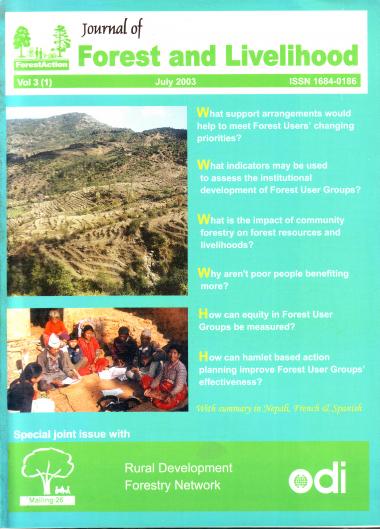Why aren’t Poor People Benefiting More from Community Forestry?
DOI:
https://doi.org/10.3126/jfl.v3i1.59737Keywords:
Why aren’t Poor People Benefiting, Why aren’t Poor People Benefiting More from Community Forestry?, community forestryAbstract
This paper summarizes the findings of a socio-economic baseline study undertaken amongst four Forest User Groups (FUGs) in Nepal focusing on levels of participation, understanding of, and benefit from, community forestry activities. Poorer households were found to benefit significantly less than wealthier households, and in some cases may even be directly disadvantaged by the advent of community forestry in their villages. A major cause of this inequity is that FUG committees are dominated by wealthier
households. In addition, awareness levels of a range of community forestry and FUG institutional issues is low, particularly amongst the poorest groups. Forests are being managed below their productive potential and only a limited proportion of members’ forest product needs come from community forests.
Downloads
Downloads
Published
How to Cite
Issue
Section
License

This work is licensed under a Creative Commons Attribution-NonCommercial 4.0 International License.
CC-BY-NC: This license allows reusers to distribute, remix, adapt, and build upon the material in any medium or format for noncommercial purposes only, and only so long as attribution is given to the creator.





